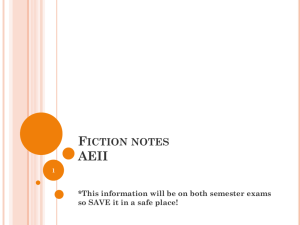Literary Terms
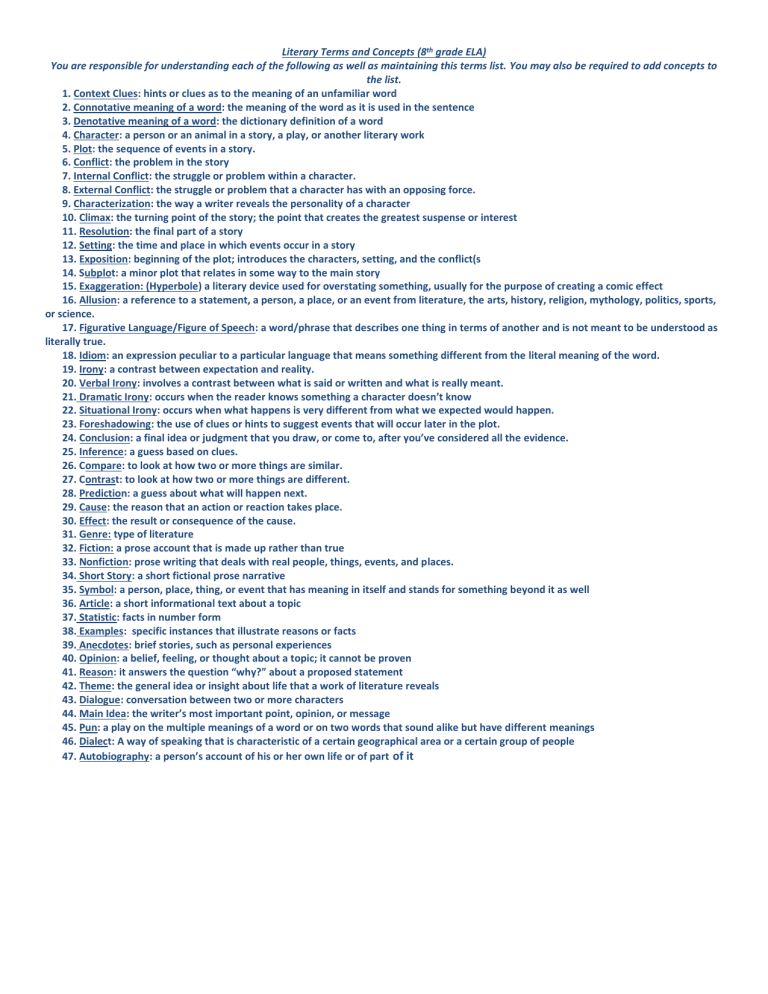
Literary Terms and Concepts (8 th grade ELA)
You are responsible for understanding each of the following as well as maintaining this terms list. You may also be required to add concepts to the list.
1. Context Clues: hints or clues as to the meaning of an unfamiliar word
2. Connotative meaning of a word: the meaning of the word as it is used in the sentence
3. Denotative meaning of a word: the dictionary definition of a word
4. Character: a person or an animal in a story, a play, or another literary work
5. Plot: the sequence of events in a story.
6. Conflict: the problem in the story
7. Internal Conflict: the struggle or problem within a character.
8. External Conflict: the struggle or problem that a character has with an opposing force.
9. Characterization: the way a writer reveals the personality of a character
10. Climax: the turning point of the story; the point that creates the greatest suspense or interest
11. Resolution: the final part of a story
12. Setting: the time and place in which events occur in a story
13. Exposition: beginning of the plot; introduces the characters, setting, and the conflict(s
14. Subplot: a minor plot that relates in some way to the main story
15. Exaggeration: (Hyperbole) a literary device used for overstating something, usually for the purpose of creating a comic effect
16. Allusion: a reference to a statement, a person, a place, or an event from literature, the arts, history, religion, mythology, politics, sports, or science.
17. Figurative Language/Figure of Speech: a word/phrase that describes one thing in terms of another and is not meant to be understood as literally true.
18. Idiom: an expression peculiar to a particular language that means something different from the literal meaning of the word.
19. Irony: a contrast between expectation and reality.
20. Verbal Irony: involves a contrast between what is said or written and what is really meant.
21. Dramatic Irony: occurs when the reader knows something a character doesn’t know
22. Situational Irony: occurs when what happens is very different from what we expected would happen.
23. Foreshadowing: the use of clues or hints to suggest events that will occur later in the plot.
24. Conclusion: a final idea or judgment that you draw, or come to, after you’ve considered all the evidence.
25. Inference: a guess based on clues.
26. Compare: to look at how two or more things are similar.
27. Contrast: to look at how two or more things are different.
28. Prediction: a guess about what will happen next.
29. Cause: the reason that an action or reaction takes place.
30. Effect: the result or consequence of the cause.
31. Genre: type of literature
32. Fiction: a prose account that is made up rather than true
33. Nonfiction: prose writing that deals with real people, things, events, and places.
34. Short Story: a short fictional prose narrative
35. Symbol: a person, place, thing, or event that has meaning in itself and stands for something beyond it as well
36. Article: a short informational text about a topic
37. Statistic: facts in number form
38. Examples: specific instances that illustrate reasons or facts
39. Anecdotes: brief stories, such as personal experiences
40. Opinion: a belief, feeling, or thought about a topic; it cannot be proven
41. Reason: it answers the question “why?” about a proposed statement
42. Theme: the general idea or insight about life that a work of literature reveals
43. Dialogue: conversation between two or more characters
44. Main Idea: the writer’s most important point, opinion, or message
45. Pun: a play on the multiple meanings of a word or on two words that sound alike but have different meanings
46. Dialect: A way of speaking that is characteristic of a certain geographical area or a certain group of people
47. Autobiography: a person’s account of his or her own life or of part
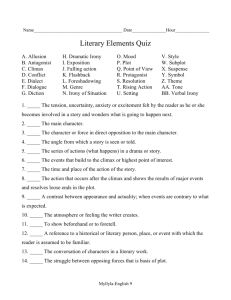
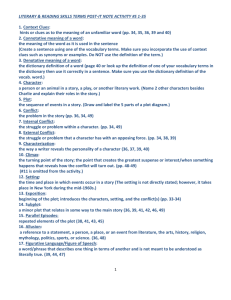
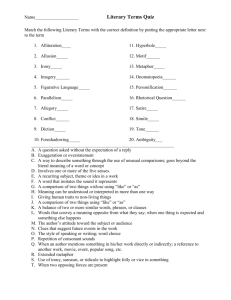
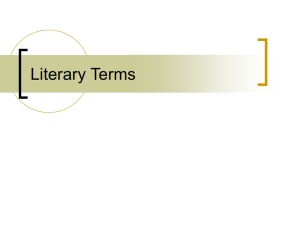
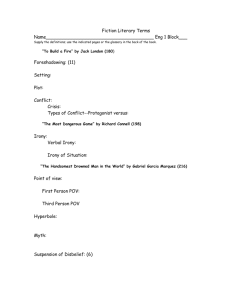
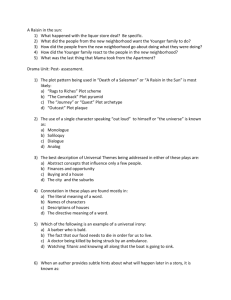
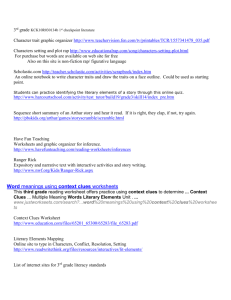
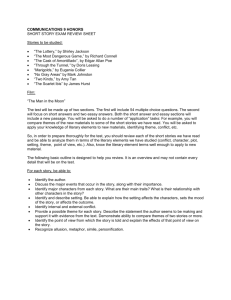
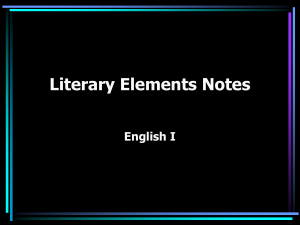
![Word Study [1 class hour]](http://s3.studylib.net/store/data/007905774_2-53b71d303720cf6608aea934a43e9f05-300x300.png)
